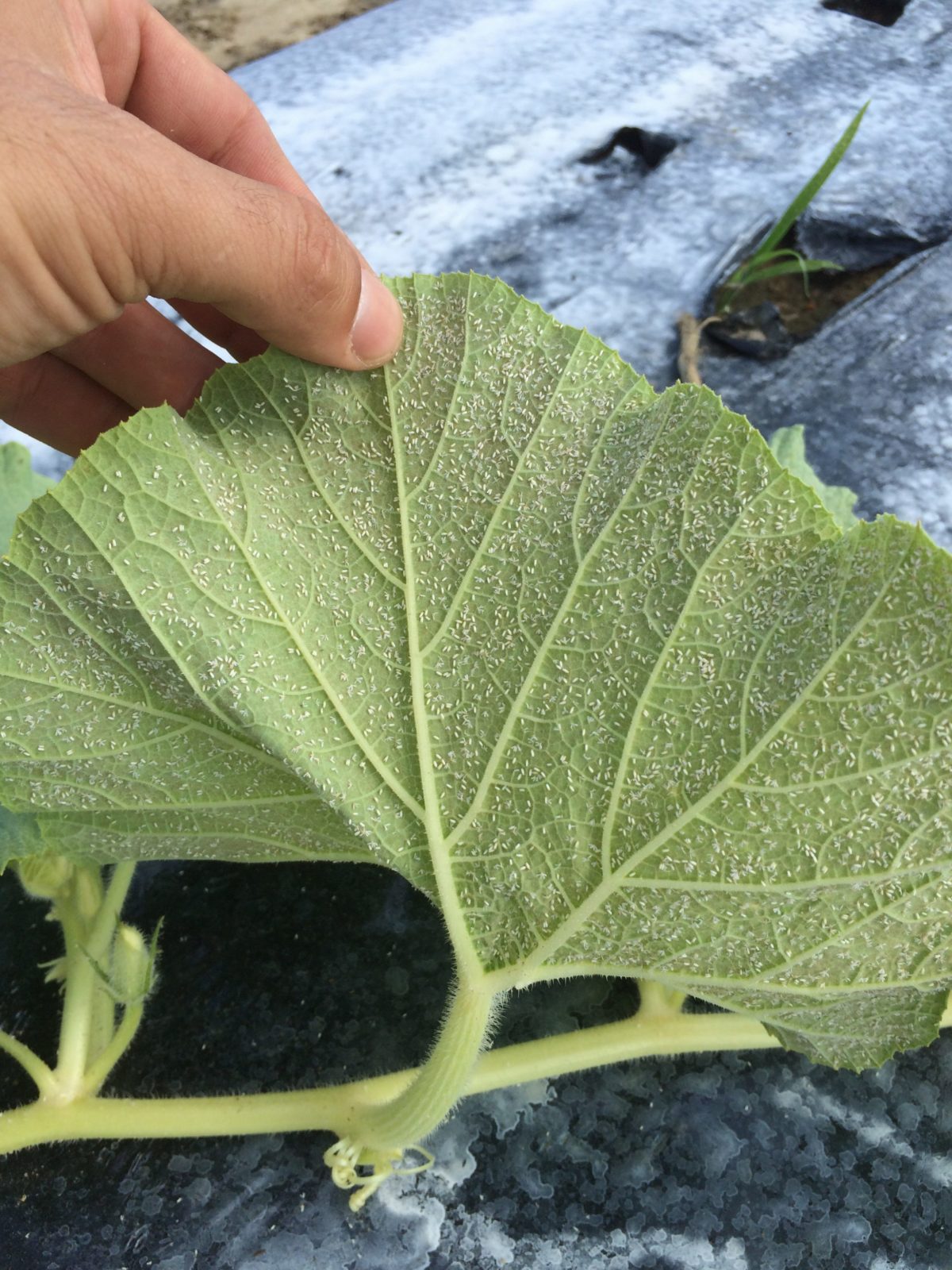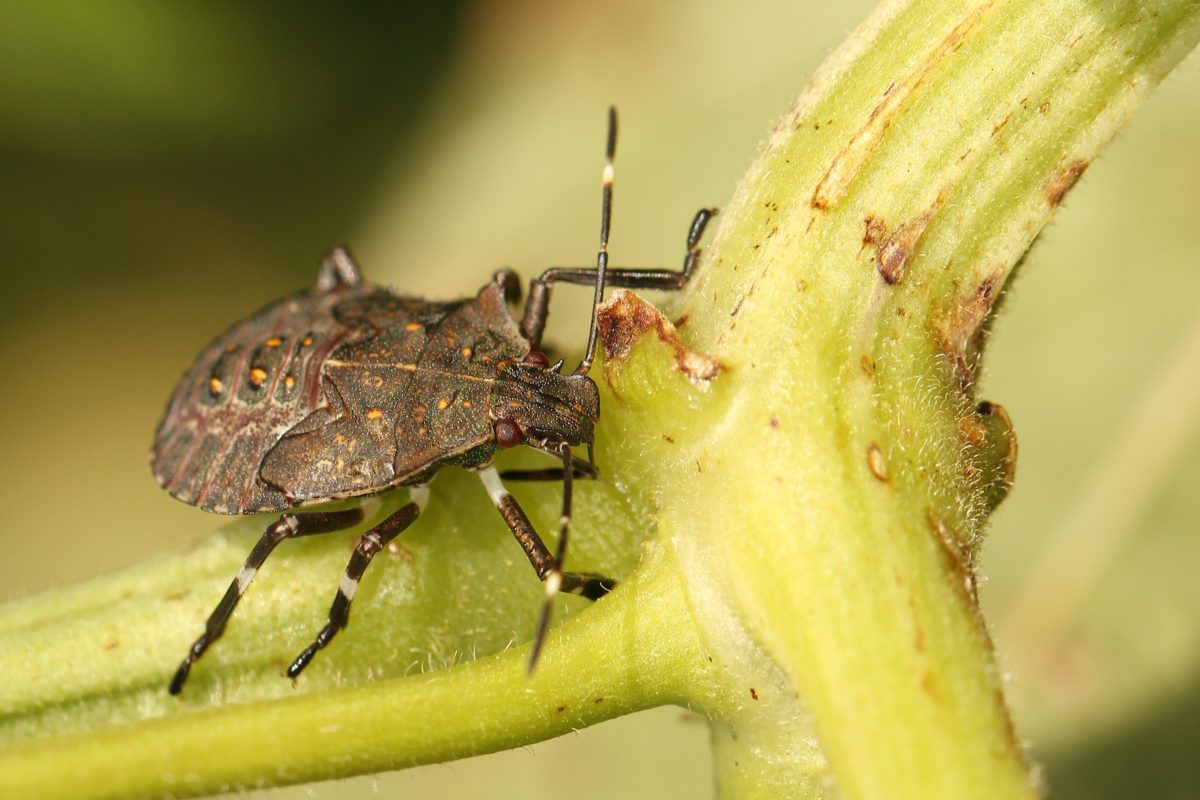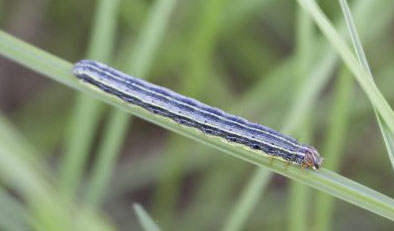According to the South Florida Vegetable Pest and Disease Hotline, whiteflies are flaring up in tomatoes and watermelons in Southwest Florida. In the Central Florida area, growers indicate that whiteflies are present in tomatoes low numbers, although some of the early plantings were hit hard by whiteflies. Tomato Yellow Leaf Curl Virus pressure remains less than 1% but it is …
UGA Vegetable Entomologist More Optimistic About Whiteflies Following Rain, Cooler Temperatures
University of Georgia Cooperative Extension vegetable entomologist Stormy Sparks is more optimistic about the ongoing whitefly problem that farmers are facing this fall – especially more than what he was feeling two weeks ago. His reason for optimism? Remnants from a hurricane and a drop in temperatures. Remnants from Hurricane Sally and cooler weather this week should help knock back …
UGA professor receives $5.4 million grant to combat destructive Asiatic fly
By Emily Cabrera for CAES News The University of Georgia College of Agricultural and Environmental Sciences (CAES) has been awarded a $5.4 million grant by the U.S. Department of Agriculture’s National Institute of Food and Agriculture to develop long-term, sustainable methods for controlling the spotted wing drosophila (SWD). Native to Asia, SWD is a tiny fly that was first detected …
Trap Cropping Effective in Reducing Unwanted Insect Populations
Ayanava Majumdar, Extension Professor in Entomology and Plant Pathology at Auburn University, touts trap cropping as being effective in controlling unwanted insect pests while also significantly reducing insecticide applications. “Not all insects will trap crop work. Trap crop works for insects that typically stay in clusters or have a strong border effect. For example, our sucking insect pests like the …
As Weather Cools, Prepare for Fall Insects
By Emily Cabrera for CAES News As the weather cools across the state, several fall insects will begin to take center stage around Georgia homes. Be on the lookout for these nuisance pests and make preparations to deter them from entering your home for the winter. Asian Needle Ants University of Georgia entomologist Dan Suiter tells homeowners to be on …
Pest Pressure High for Alabama Vegetable Growers
Alabama fruit and vegetable growers need to be aware that moths are still active across the state. According to the Alabama Extension Commercial Horticulture Facebook page, the number of fall and yellowstriped armyworms, soybean loopers, corn earworms and vine borers continues to rise. There is a risk of infestations in vegetable crops from caterpillars. Scout and control these early. According …
Use Resistant Varieties When Possible to Protect Against Whiteflies
University of Georgia Cooperative Extension vegetable entomologist Stormy Sparks paints an ominous picture of the potential devastation whiteflies will have on this year’s fall vegetable crop. “We’re probably a month ahead of the last two years. This is going to be challenging fall for whiteflies,” Sparks said. Vegetable producers across the Southeast have either planted or are currently planting their …
Proper Sanitation Remains Key Management Tactic Against Whiteflies
One of the best management tactics for vegetable growers when dealing with whitefly infestations is to get rid of any plants left in the field once harvest season is done. University of Georgia Cooperative Extension vegetable entomologist Stormy Sparks continues to preach proper sanitation to producers amid the worst whitefly outbreak in Georgia since 2017. “This is really for all …
Tomato Growers Watch Out for Insects
Tomato planting is currently underway across the Southeast. It is never too early to start thinking about insect pests that could hinder fall production in Alabama. According to the Tomato Insect Pests 101 video, Ayanava Majumdar, Auburn Extension Professor in Entomology and Plant Pathology, cautions growers to scout their tomato fields every week for pests and look for insects over …
Corn Earworms Remain Key Pest for Alabama Hemp Producers
Alabama hemp producers are tackling one pest after another this growing season. They started with fire ants not long after the crop was planted. Now, according to Katelyn Kesheimer, Auburn University Assistant Professor and Extension Specialist, the key insect is corn earworm. “They’re really hard to control because they start small. Then they’ll be eating and eating and eating and …












